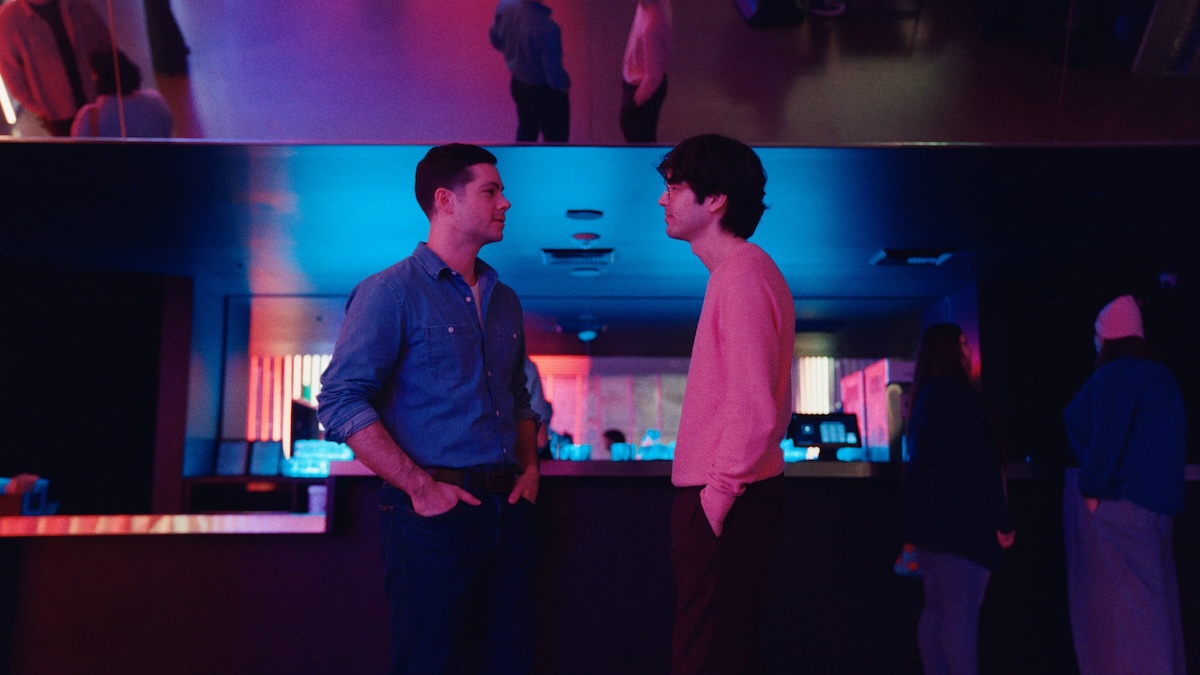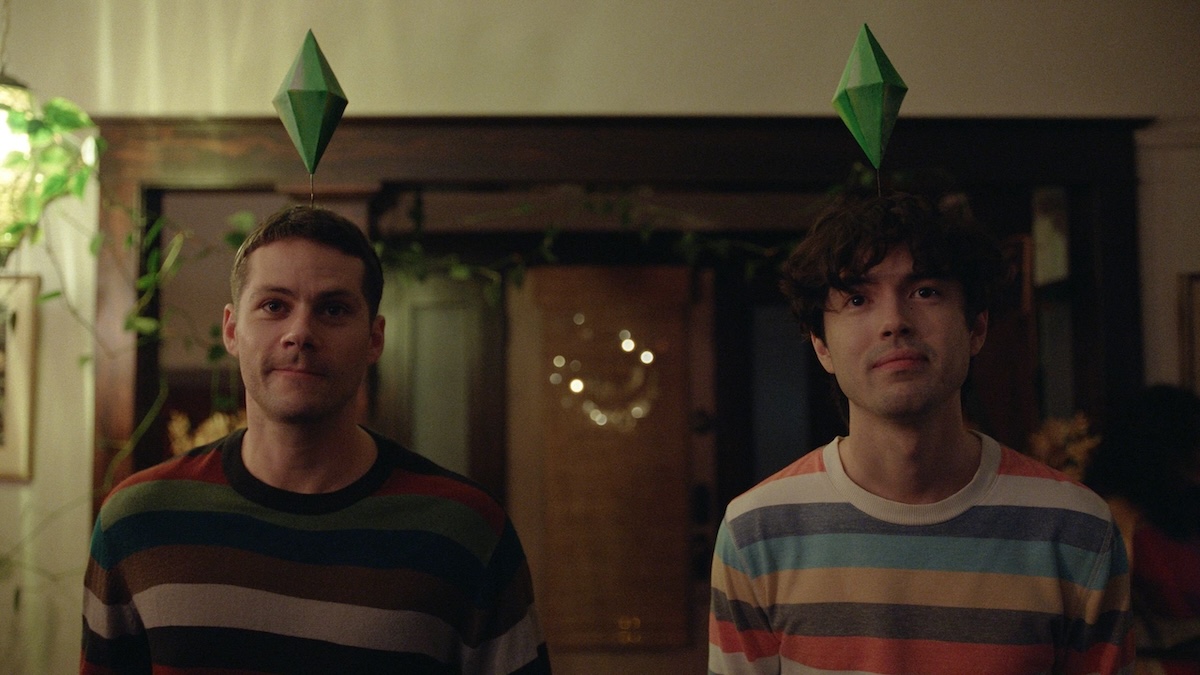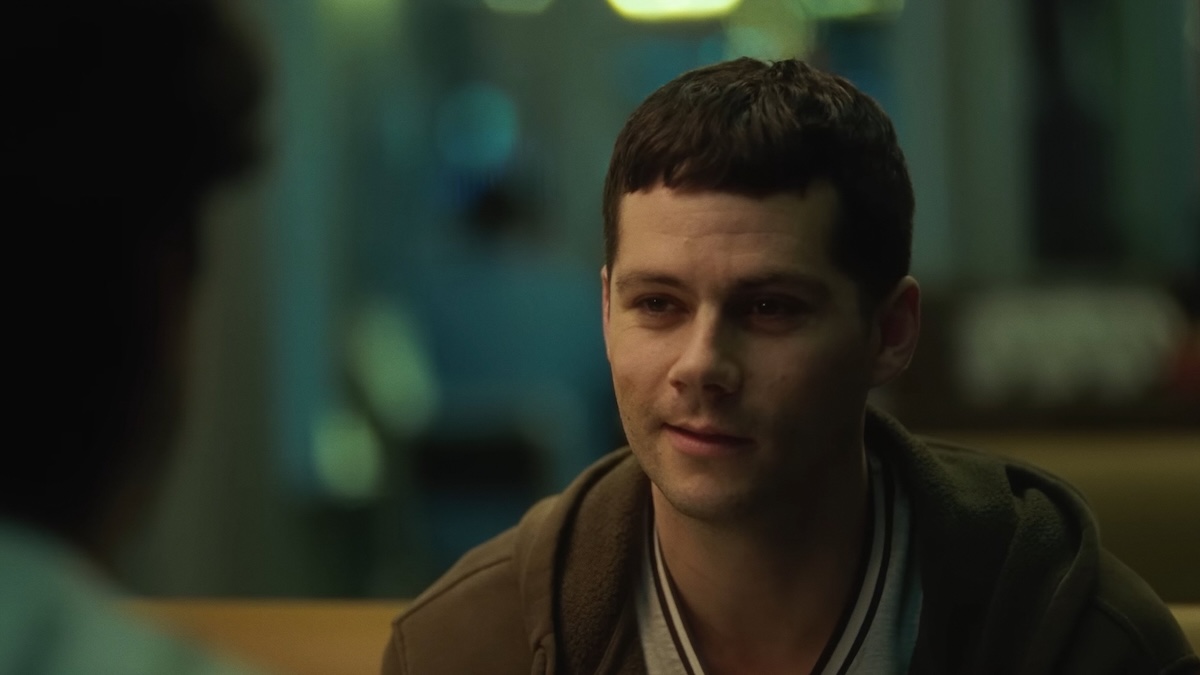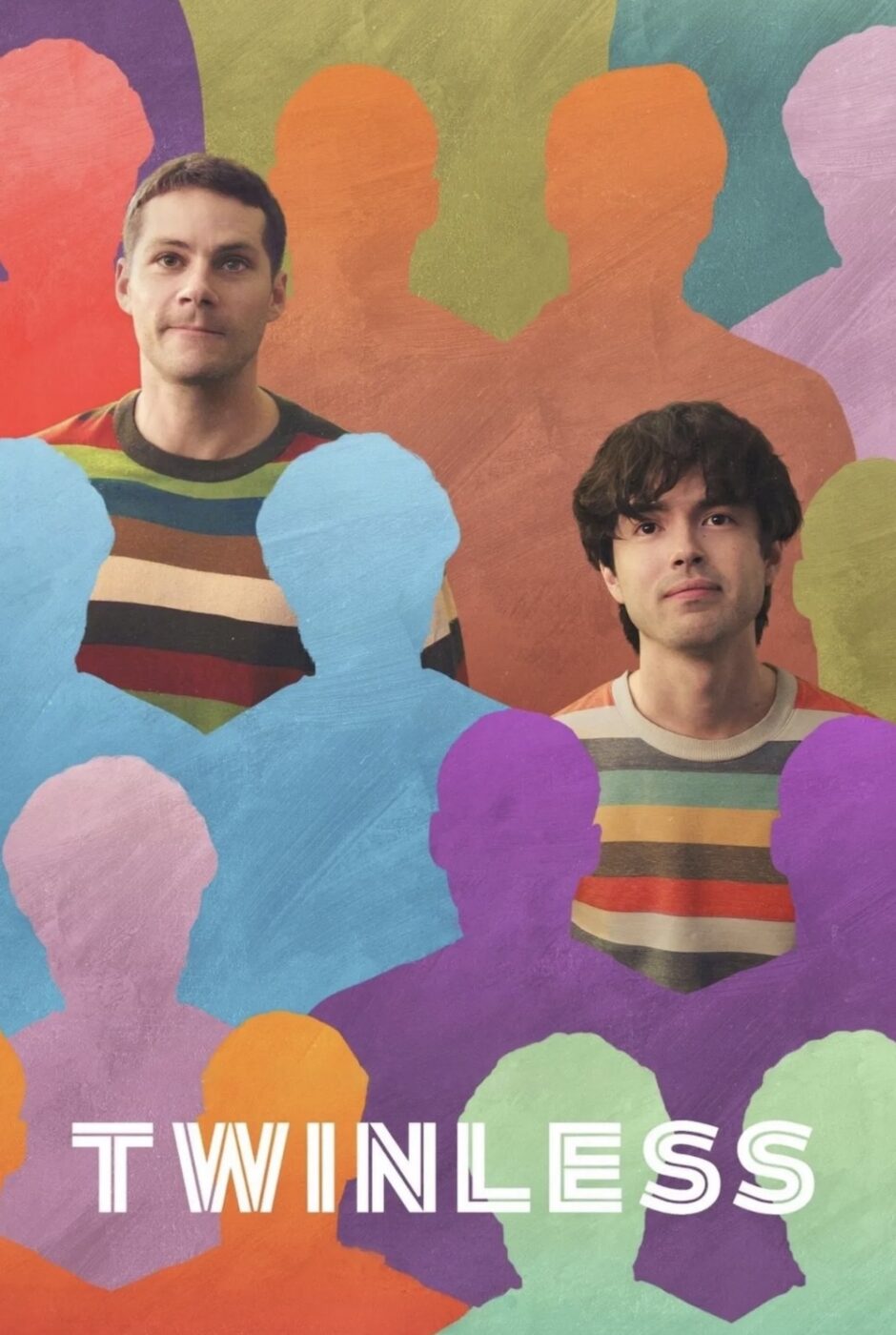TWINLESS (2025)
A young man grieving the loss of his twin brother joins a support group for "twinless twins."

A young man grieving the loss of his twin brother joins a support group for "twinless twins."

At the start of Twinless, we meet Roman (Dylan O’Brien), grieving the recent death of his identical twin, Rocky (O’Brien again). Roman’s going through the unimaginable loss of someone who looked and sounded exactly the same as him, only Rocky was considered much more intelligent, witty, and successful. After the funeral, Roman decided to stay in his sibling’s hometown, despite it being a painful visual reminder of his family’s loss. Strangers literally come up to him in tears because of his resemblance to Rocky.
Roman eventually finds himself at a support group for those who’ve suffered the death of their twin, which is where he meets Dennis (director James Sweeney), a smart, cultured, gay man, which are three things Roman misses about his sibling. And the two men find they have great comedic chemistry and find mutual ground in their insecurities and naivety.
Twinless fools audiences into thinking it’s one specific type of film before it switches tone in the middle act. Avoiding any spoilers, Twinless pulls the rug out from under its audience and seamlessly transitions from one genre to another. What initially appears to be a comedy-drama about grief switches to something more sinister and psycho-sexual.

Through shifts in perspective and a flashback scene to Rocky’s last days, Twinless seamlessly evolves in genre and tone. The screenplay is a masterclass in show-don’t-tell, using a few minor plot devices to completely flip the audience’s perspective on Dennis and his relationship with Roman. Twinless never explains the characters and relationships to its audience, but instead lets their story gently unfold.
Written and directed by co-star James Sweeney, Twinless is at its best when exploring grief in all its crass, crude, and uncomfortable glory. His writing smartly balances the sweet and the spiky, never using the tragedy as a joke while still finding the humour in the loss of an identical twin. The opening is a sensitive portrayal of two very different men trauma-bonding and navigating grief.
These performances and writing would have been good enough to sustain their own 90 minutes without evolving into a different type of story. Some may even find themselves feeling short-changed with Twinless’s bait-and-switch tactics. There’s a real sense of loss for the sweet comedy about a support group for twins because that story had so much more potential than the half-hour spent on it.
Instead, Twinless uses tropes better suited to Pedro Almodóvar-esque psychological thrillers than comedies to explore the friendship. Roman and Dennis’s relationship changes when Roman starts dating Marcie (Aisling Franciosi), who works with graphic designer Dennis. He becomes jealous that Roman’s moved away from needing him and concerned that Marcie knows too much about his true self. The cat-and-mouse chase between Dennis and Marcie promises something more sinister than it actually delivers.

Sweeney, a queer man, plays a gay man in Twinless, but it’s the least interesting thing about his character Dennis. While the graphic sex scene made headlines when the film premiered at the Sundance Film Festival, the movie’s far more subtle in its portrayal of sexuality. Dennis pins his loneliness on being gay, even if that’s not accurate, because Roman is drawn to him because of his similarities to Rocky. While Twinless isn’t a film about queerness, Dennis and Roman’s sexuality colours every experience they have and every connection they form.
Dylan O’Brien (Bumblebee) delivers an astounding performance as both brothers. We meet Rocky in a flashback and the difference between him and Roman is vast. It’s impressive how the same actor can bring such different performances to roles that are visually the same (minus a moustache). Rocky is confident, effeminate, and likeable… while Roman is self-conscious, naïve, and not the “brightest tool in the shed.” As Rocky, O’Brien is bold and fearless, but as Roman he’s devastatingly quiet. Twinless more than proves that O’Brien isn’t just an erstwhile teen TV actor but someone with a successful career ahead of him as a serious actor.
James Sweeney also manages to keep Dennis sympathetic, even when his behaviour doesn’t warrant it. But wWhile he delivers likability, Sweeney’s slightly less compelling in the more emotional scenes, especially in comparison to the raw emotion delivered by co-star O’Brien. There’s a sense that Sweeney understands where his talents fall short and lets himself take a backseat to others on-screen. Some dramatic scenes in the final act therefore lack impact because of Sweeney’s shortcomings, but they fit his unpredictable character.

Twinless is also an interesting-looking film that makes bold choices in its cinematography. The movie plays with perspective throughout. For example, in one scene, the camera pulls back to reveal we’re watching characters from the POV of someone driving in their car. And in a later party scene, the audience follows Dennis and Roman through a split screen as the pair pull away from each other. Nikola Boyanov’s editing uses smash and jump cuts to add a freshness to the story, giving the visuals interest when the writing underplays events.
The writing is devastatingly quiet, but works far better as a drama than as a comedy. The humorous elements don’t quite land in the same way as Sweeney’s meditations on grief and loneliness. Those tuning in for laughs will likely find themselves disappointed in the bittersweet nature of the comedy.
The humour is more centred on the absurdity of the concept of identical twins. Sweeney and his character, Dennis, are both obsessed with the notion of twins. There’s something fascinating about having a perfect “replica” of yourself wandering around in the world, only with vastly different interests and personality traits. This specific type of humour’s played out at Rocky’s funeral, where the mourners grieve at seeing someone who looks exactly like the deceased standing by his graveside.
Twinless rewards those who go in with as little information as possible. But once the rug’s been pulled out from under us, the writing struggles to maintain its momentum. There’s a sense the third act is unfinished to the degree of pointlessness. While the journey’s a thrill in its exploration of identity and grief, the destination comes as a slight letdown.
USA | 2025 | 100 MINUTES | 1.85:1 | COLOUR | ENGLISH


writer & director: James Sweeney.
starring: Dylan O’Brien, James Sweeney, Aisling Franciosi, Lauren Graham, Tasha Smith, Chris Perfetti, François Arnaud, Susan Park & Cree Cicchino.
